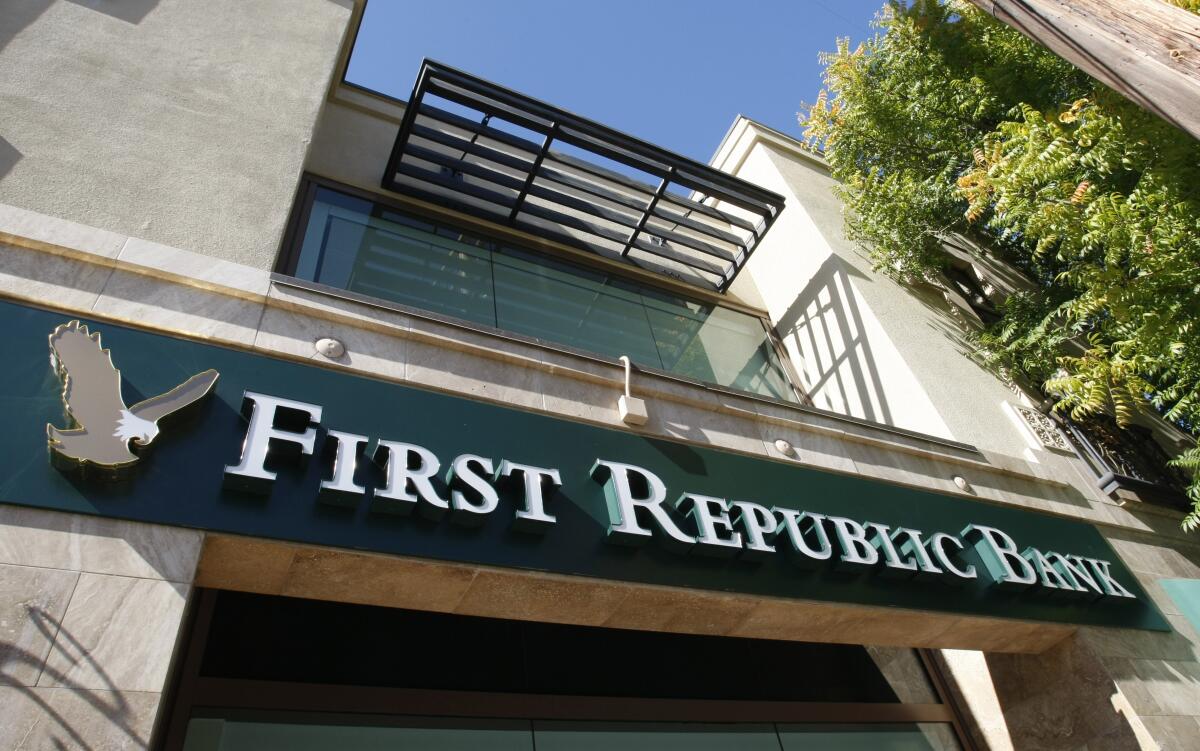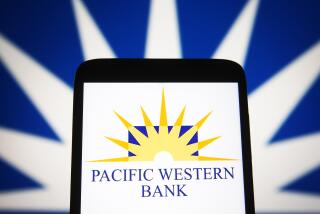First Republic reverses 36% plunge as U.S. pushes bank rescue

- Share via
First Republic Bank reversed a 36% plunge as some of the nation’s largest lenders were nearing a U.S. government-orchestrated deal to deposit about $30 billion in an effort to stabilize the bank.
Shares were 22% higher at $34.28 as of 1:06 p.m. in New York, after dropping as low as $19.80. That stems a slide that had erased more than $17 billion from First Republic’s market capitalization this month amid fallout from the collapse of three banks, including regional lender Silicon Valley Bank.
Banks including JPMorgan Chase, Citigroup, Bank of America , Wells Fargo, Morgan Stanley and PNC Financial Services Group are part of the discussions, said the people, asking not to be identified because the talks are private. Details of the rescue, which are still being worked out, may be announced as soon as Thursday, the people said.
Investors across the banking space are on tenterhooks amid the upheaval in U.S. regional lenders as well as the tumult surrounding Credit Suisse. Shares of the Swiss bank rebounded Thursday after it opened a $54-billion line of credit with the country’s central bank and offered to buy back debt. The European Central Bank delivered a planned half-point hike in interest rates Thursday.
First Republic Bank is cut to junk by S&P Global Ratings and Fitch amid concern that clients will pull holdings, after regulators pledged bank support.
First Republic specializes in private banking and wealth management, and has tried to differentiate itself from Silicon Valley Bank.
On Wednesday, First Republic shares sank 21% as its credit rating was cut to junk by S&P Global Ratings and Fitch Ratings. The bank said Sunday that its total available unused liquidity to fund operations was more than $70 billion, from agreements that included the Federal Reserve and JPMorgan Chase & Co.
Bloomberg writer Maxwell Zeff contributed to this report.
More to Read
Inside the business of entertainment
The Wide Shot brings you news, analysis and insights on everything from streaming wars to production — and what it all means for the future.
You may occasionally receive promotional content from the Los Angeles Times.











